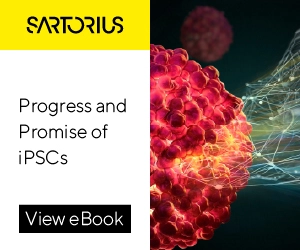In a recent breakthrough from researchers at the Harvard-affiliated Beth Israel Deaconess Medical Center and Mass General Brigham, a study points towards a revolutionary approach in the battle against liver cancer—using blood proteins to detect the disease much earlier than is currently possible. Liver cancer, a relentless disease often caught too late for effective treatment, might soon see a paradigm shift in its diagnostic processes.
The study, published in JNCI, showcases the potential of proteomics, the detailed study of proteins, to become a game-changer in oncology, particularly for hepatocellular carcinoma (HCC), the most common type of liver cancer. This disease is notorious for being the third leading cause of cancer death worldwide, with diagnosis typically occurring at advanced stages where patients have a drastically reduced survival rate.
At the heart of this promising research is the use of the SomaScan Assay Kit, a sophisticated proteomics platform capable of measuring protein levels in biological samples. The research team, led by Xinyuan Zhang from Brigham and Women’s Hospital, managed to identify 1,305 biologically relevant proteins that could be detected in blood samples from patients years before the liver cancer diagnosis was officially made.
Why does this matter? Early detection is crucial in the fight against cancer. The ability to diagnose liver cancer in its nascent stages could dramatically extend life expectancy by making therapeutic interventions, such as surgery or liver transplantation, not just possible but potentially curative. Currently, most liver cancer patients are diagnosed at a stage when the options are limited and less effective, contributing to the high mortality rates associated with the disease.
The study utilized blood samples from participants in two major U.S. health studies—the Nurses’ Health Study and the Health Professional Follow-Up Study. Notably, these samples were taken from individuals an average of 12 years before their liver cancer diagnosis. This allowed the researchers to pinpoint specific protein biomarker signals that were significantly elevated in individuals who later developed liver cancer compared to those who did not.
Out of numerous proteins analyzed, 56 showed significant potential as biomarkers, with four of these proteins forming the basis of a new predictive model. This model was subsequently tested on a large-scale U.K. dataset and showed superior accuracy in predicting liver cancer compared to traditional risk factors.
Despite the excitement around these findings, the authors urge caution and emphasize the need for further validation. The study’s sample size for liver cancer cases was relatively small, and extending these findings to larger and more diverse populations is necessary. Moreover, co-senior author Towia A. Libermann highlights the broader implications of their work, suggesting that these protein biomarkers could serve as non-invasive tests to assess liver cancer risk, potentially revolutionizing how we approach cancer detection and treatment.
In conclusion, this study not only sheds light on new biological insights into liver cancer but also sets the stage for potentially transformative developments in how we predict and treat this formidable disease. While more research is undoubtedly needed, the promise of using blood proteins to detect liver cancer years before its traditional diagnosis could soon be a reality, offering new hope to patients worldwide.
Read More: https://news.harvard.edu/gazette/story/2024/05/getting-ahead-of-liver-cancer/







